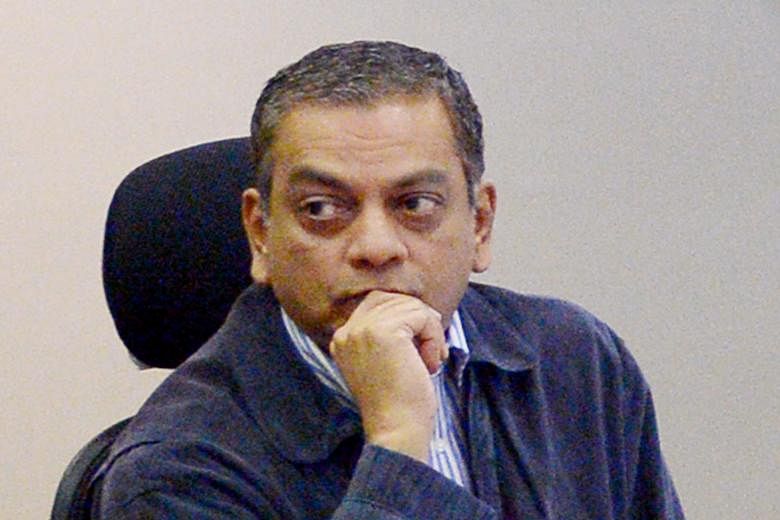SINGAPORE - SMRT's vice-president of corporate communications Patrick Nathan has resigned from the rail operator.
The Straits Times understands Mr Nathan, 56, is now serving out his notice, but has not told his team when his last day is and who will replace him.
In what is seen as a start of management changes at a company besieged with massive breakdowns, serious safety breaches and questionable work culture, Mr Nathan's resignation came amid other appointments in SMRT.
From next month, Mr Seah Moon Ming, who replaced Mr Koh Yong Guan as SMRT chairman last July, will become an "active" chairman, with a more hands-on role. Mr Seah will relinquish his role as chief executive of oil and gas company Pavilion Energy at the end of this month.
Mr Seah has appointed corporate communications veteran Elaine Koh, 43, as chief commuter engagement officer. The new role is an industry-first, although part of her responsibilities currently fall within Mr Nathan's department.
When contacted, Mr Nathan said news of his resignation were "rumours", but did not refute them.
The former national security specialist joined SMRT in 2011 to head its security and emergency planning department following a vandalism case at its Bishan depot.
Two years later, he was picked to become SMRT chief spokesman after Ms Kalai Natarajan, a public relations veteran, quit the post suddenly after five months in the job.
The public's call for change at SMRT has become louder since the latest spate of incidents, which included a tunnel flooding that was traced to wilful negligence of maintenance.
Observers are expecting chief executive Desmond Kuek to step down as well.
PeopleWorldwide Consulting's managing director David Leong said: "The shift of leadership from the CEO to the chairman is obvious."
But Mr Leong, a human resource expert, said changing leadership may not solve "the engineering issues".
Singapore University of Social Sciences economist Walter Theseira said: "I think the question is who is the best positioned to effectively lead SMRT into the future. I think current management has made more progress than is visible to the public. But what they clearly have is a credibility deficit with the public, who only sees the outcome and not the work behind the scenes."
Dr Theseira said that if a new management takes over, it would have "to start over building trust and working with staff".
"I'm not sure whether that would be helpful at this stage," he added. "Of course in most business organisations, there is usually no hesitation in changing management even if it's not their fault per se."
Mr Low Boon Seong, managing director of human resource consultancy Align Group, said for embattled SMRT, "change may be better than no change" because "a new leadership is necessary to rebuild trust" with the company.
For all that has gone wrong, "management must take full responsibility", he added.


